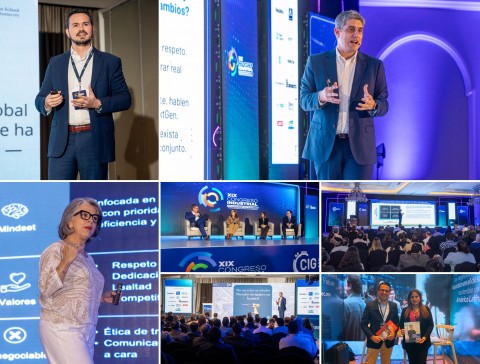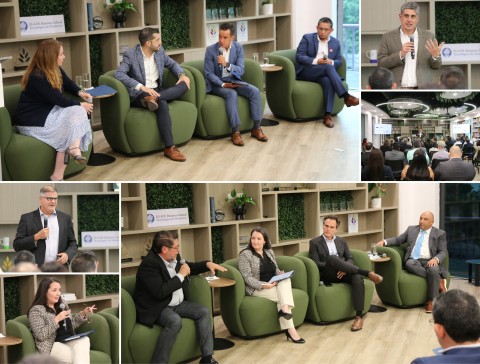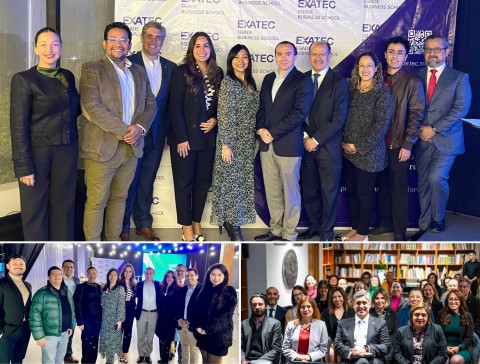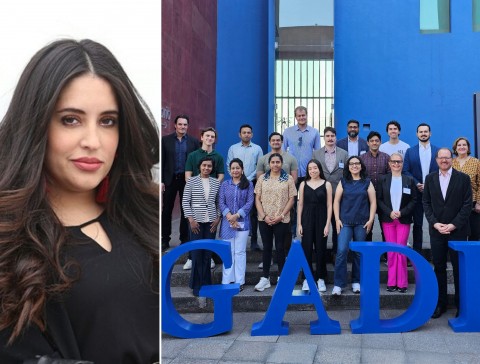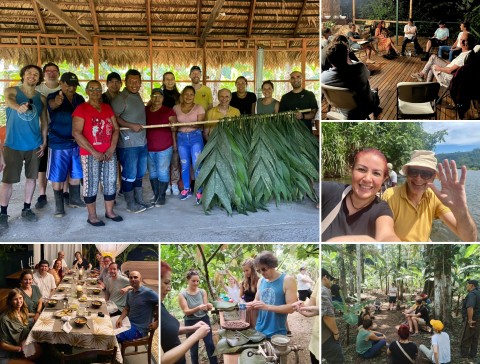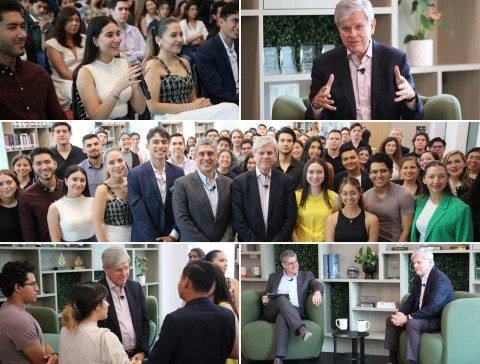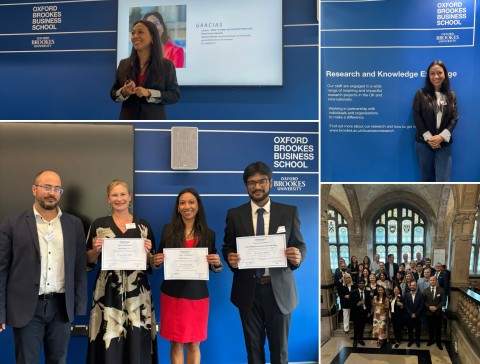EGADE strengthens its leadership in Mexico and Latin America in the QS Global MBA & Business Master’s Rankings 2025
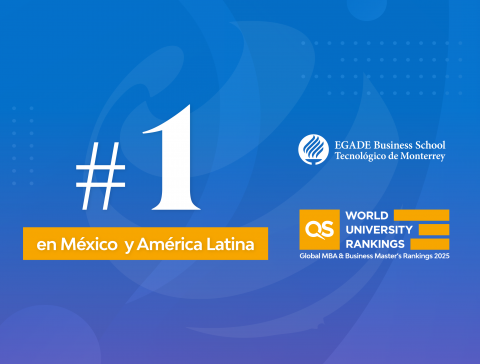
The EGADE Full-Time MBA, Master in Finance, Master in Business Analytics, and Master in Business Management rank #1 in Mexico and Latin America in their respective categories.
By INSTITUTIONAL COMMUNICATIONS | EGADE BUSINESS SCHOOL
EGADE Business School at Tecnológico de Monterrey reaffirmed its position as a leader in postgraduate business education in Mexico and Latin America, according to the 2025 QS Global MBA & Business Master’s Rankings by Quacquarelli Symonds (QS).
The EGADE Full-Time MBA and Master in Finance programs have been recognized as the best in Latin America for the eighth consecutive year, consolidating themselves among the best in the world in graduate performance, employability, and thought leadership. In addition, EGADE’s Full-Time MBA climbed six places in this edition, moving from #62 to #56 globally, standing out as the only program in Mexico that appears in the Top 100 Global out of 340 MBA programs evaluated across 58 countries.
In addition, the Master in Business Management and the Master in Business Analytics stand out as the best in Latin America, ranking within the top 25% worldwide in their respective categories.
QS GLOBAL MBA RANKINGS 2025
The EGADE Full-Time MBA consolidated its leadership in the region, achieving:
- #1 in Mexico and Latin America out of 12 evaluated programs for 8 consecutive years.
- #1 in Entrepreneurship and Alumni Outcomes in Latin America and #16 globally.
- #1 in Thought Leadership in Latin America and #55 globally.
- #56 globally out of 340 evaluated programs, climbing 6 positions.
QS BUSINESS MASTER'S RANKINGS: FINANCE 2025
The Master in Finance secured its position as the best in the region, ranking:
- #1 in Mexico and Latin America for 8 consecutive years.
- #29 in Employability globally.
- #41 globally out of 222 programs, advancing 2 positions.
QS BUSINESS MASTER'S RANKINGS: BUSINESS ANALYTICS 2025
The Master in Business Analytics maintained its leadership, ranking:
- #1 in Mexico and Latin America for 2 consecutive years.
- #16 in Alumni Outcomes globally.
- #38 globally out of 164 programs evaluated.
QS BUSINESS MASTER'S RANKINGS: MANAGEMENT 2025
The Master in Business Management program also excelled with:
- #1 in Mexico and Latin America.
- #37 in Alumni Outcomes globally.
- #47 globally out of 206 evaluated programs, climbing 4 positions.
The QS rankings methodology considers business schools' reputations from the perspective of approximately 60,000 global employers and 40,000 academics and evaluates factors such as employability, entrepreneurship, thought leadership, alumni outcomes, return on investment, and student and faculty diversity.
“These remarkable results reflect the exceptional quality of our students, graduates, faculty, staff, and partners. They demonstrate our unwavering commitment to the excellence, relevance, and innovation of our educational model and to achieving the best outcomes for our graduates in partnership with the world’s top employers. This latest recognition by QS inspires us as we enhance our commitment to our purpose: Rethink the future of business to impact the sustainable development of Latin America,” stated Horacio Arredondo, Dean of EGADE Business School.
These rankings, prepared by QS, highlight the most in-demand postgraduate programs among global employers and only include schools accredited by AACSB, AMBA, or EQUIS, all of which are certifications held by EGADE Business School as part of the prestigious "Triple Crown."
The full results of the 2025 QS Global MBA & Business Master’s Rankings have been available since 25 September at the following links:
